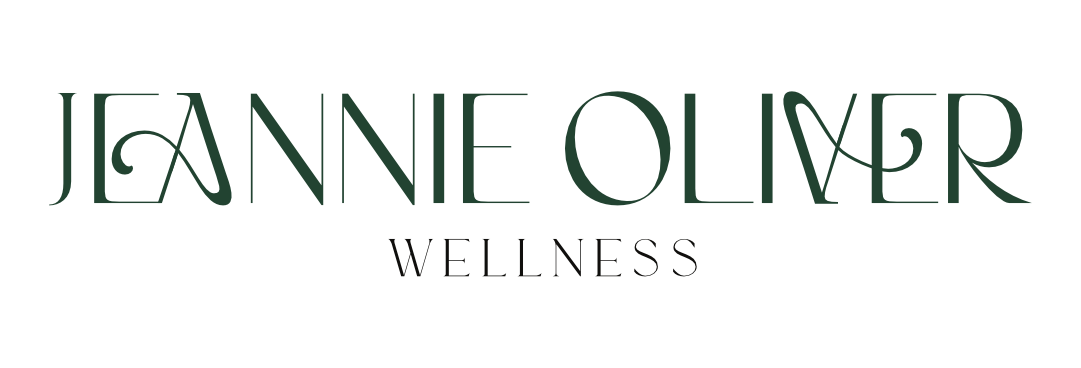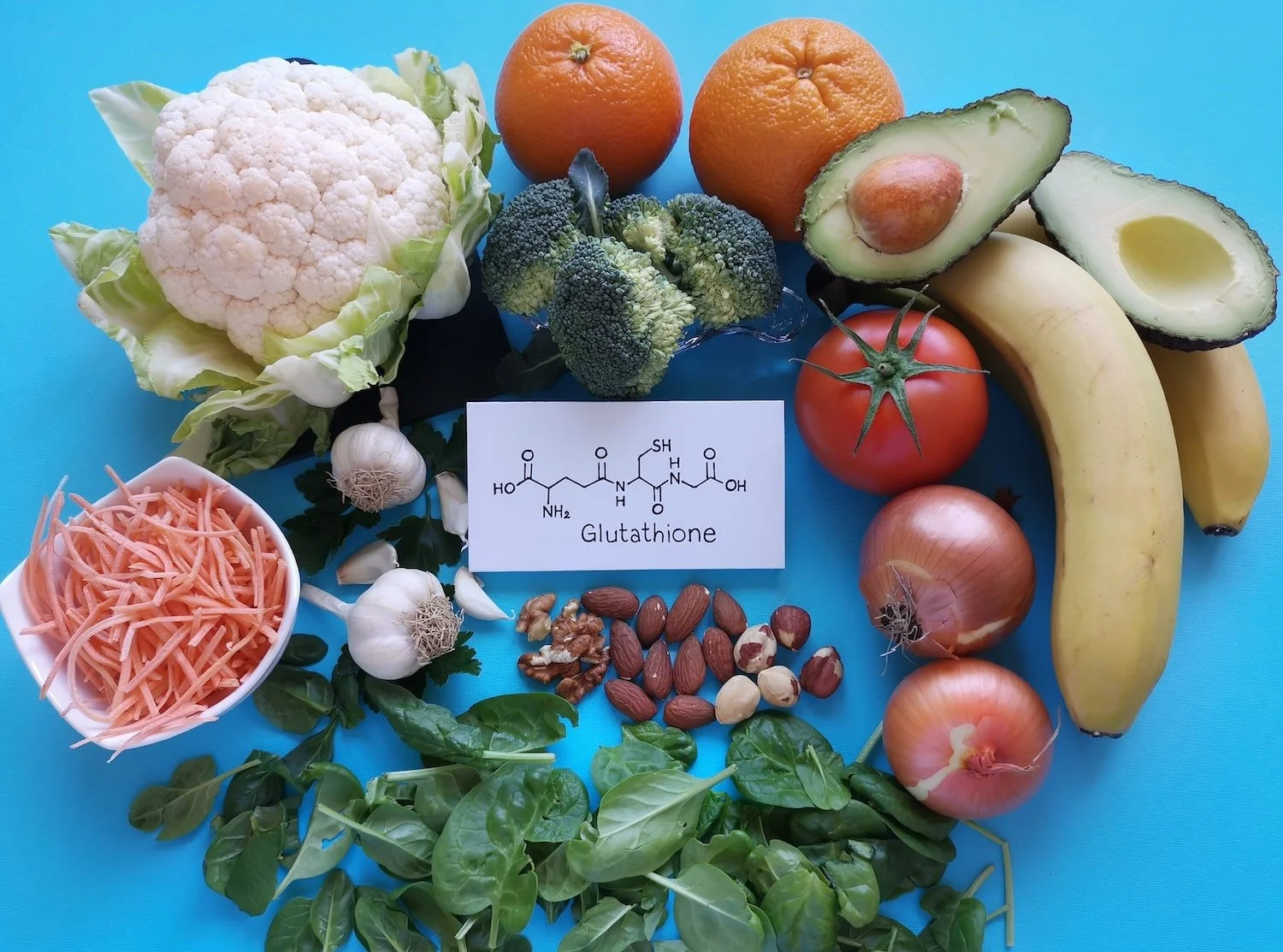Boosting Glutathione with Nutrition
Glutathione is a simple molecule made up of three amino acids - cysteine, glycine and glutamine. But don’t be fooled by its simplicity. This little molecule packs a seriously healing punch and is essential for proper immune function, detoxification, and controlling inflammation in the body.
For patients struggling with fatigue and chronic illness, maximizing glutathione is a top priority. Insufficient glutathione prevents the mitochondria (the power house of the cell) from producing ATP which is the primary source of energy for all living cells. Without the ability to make sufficient ATP, we feel exhausted and our body’s ability to heal is greatly reduced.
Not only is glutathione is our body’s main antioxidant, protecting our cells from oxidative stress and facilitating energy production, but it is the most critical component in our bodies’ detoxification system. It acts like a magnet to grab toxins and free radicals, delivering them into the bile and stool for safe removal from the body. Normally glutathione is recycled in the body, providing continuous protection from oxidative stress or toxicity, but when our bodies accumulate too high a toxic load, this process is inhibited.
Thankfully there are practical ways in which we can use good food and healthy lifestyle practices to increase glutathione production in our bodies.
1. Eat more cruciferous vegetables.
Exposure to toxins and inflammatory foods causes oxidative stress in the body which causes our bodies to produce free radicals faster than we can neutralize them with antioxidants. Antioxidant foods, especially those high in a compound called sulforaphane, give the body the nutrient precursors necessary for the production of glutathione. Cruciferous veggies are the best source of sulforaphane, acting as powerful antioxidants to help spare our cells from damage and reduce oxidative stress. According to a study at Johns Hopkins University, sulforaphane is the most protective antioxidant substance on the planet.
Cruciferous vegetables include broccoli sprouts, broccoli, cauliflower, Brussels sprouts, cabbage and kale, and in addition to providing sulforaphane, they are some of the richest food sources of glutathione. Brussels sprouts are the richest in glutathione, followed by cauliflower, broccoli (particularly the flowers, not the stem), cabbage, kale, bok choy, cress, mustard, horseradish, turnips, rutabagas, and kohlrabi. Brussels sprouts have also been shown to rejuvenate liver cell function.
Ideally these veggies should be lightly steamed for 3-5 minutes to maximize their antioxidant effects. Growing your own organic broccoli sprouts is also a great and affordable way to get major bang for your antioxidant buck.
2. Increase your methylation nutrients.
Methylation is a biochemical process that helps produce nutrients, antioxidants and neurotransmitter that regulate our cardiovascular, detox, reproductive and neurological systems. It is also responsible for epigenetics, or “turning genes on or off” to determine genetic expression (note that expression is not necessarily the same as genetic predisposition).
If you’re not methylating well due to factors including diet, lifestyle, toxic exposures and genetics, it can negatively affect you in a multitude of ways, so it pays to support your body in this process.
A few of the nutrients that support methylation (aka “methyl donors”) are vitamins B6, B12 and Folate (also known as B9). These are some of the most critical nutrients in glutathione production, and you can easily increase foods rich in these nutrients.
The best food sources of these B vitamins are meat, fish, poultry, eggs, organ meats, spinach, asparagus, turnip greens, avocado, sunflower seeds, dark leafy greens, papaya, oranges, cantaloupe, and legumes.
3. Get more glutamine.
Glutamine is plentiful in plants and meats but is easily destroyed by heat. Your best bets are fresh, raw parsley, spinach and sashimi, although I don’t recommend eating raw fish if your digestion or immunity are even slightly compromised (if you are producing sufficient stomach acid and the fish is from a reputable and high-quality restaurant, sashimi may be ok for you, but proceed with caution).
4. Say yes to selenium.
Selenium plays an important role in helping the body both produce and recycle glutathione. The best food sources of selenium are Brazil nuts (4-5 maximum per day), sunflower seeds, oatmeal (organic, gluten-free only), tuna, turkey, beef, chicken breast, eggs and brown rice.
5. Spice things up.
Turmeric, cinnamon, and cardamom are three spices that are helpful for restoring glutathione levels. Be sure to get high quality, organic spices which are additive free and as fresh as possible.
6. Raw milk and non-denatured whey.
For those who tolerate dairy well, raw organic milk and raw non-denatured whey protein may be helpful in supplying cysteine, which is considered the most important of the three building blocks of glutathione. I generally encourage our patients to avoid dairy, but in certain cases, the benefits may outweigh the risks when it comes to glutathione production.
Cysteine must come from food since our bodies cannot produce it and the two best sources are raw milk and bioactive, non-denatured whey protein. Since heat and cooking destroy the cysteine, it is important that the source is raw and from a quality source of organic, grass-fed milk. If you choose to consume raw dairy, be sure to do your research to find the safest source possible.
7. Rest, relax and move your body.
Minimizing stress is key in preventing depletion of glutathione. Practice stress-reducing activities like deep breathing, meditation, yoga and leisure walking as often as possible. Sometimes a few minutes of stretching and deep breathing before bed can help you wind down, reduce stress hormone production, and contribute to a more restful nights’ sleep.
Sleep is a crucial component in the body’s ability to heal and produce sufficient glutathione. Studies show that glutathione levels were significantly reduced in the brains of sleep-deprived animals, so try to get as much quality sleep as possible and take naps when necessary. Melatonin is a hormone that is released at night time and acts to regulate sleep. It is a powerful antioxidant that has been shown to increase glutathione levels in the brain, liver, muscle tissue and blood. Sour cherries, especially Montmorency cherries are a great food source of melatonin.
Exercise also boosts glutathione production and improves the body’s ability to detoxify. Start slowly by doing gentle exercise and work your way up to 30 minutes a day of sports or more vigorous exercise such as hiking or biking. Resistance training for 20-40 minutes is also effective and will help increase and maintain lean muscle mass.
Other glutathione boosting foods:
Garlic
Blackstrap molasses
Raw red beets
Okra
Squash
Pumpkin seeds
Sesame seeds
Walnuts
Tomato
Carrot
Dill
Mushrooms
Shellfish
Grapefruit
Orange
Zucchini
Strawberry
Quinoa
Buckwheat
Spirulina
Incorporating these lifestyle tips and delicious foods can help you boost your body’s glutathione production, increase immunity and antioxidant function, and enjoy a healthier, more vital life. Bon apetit!
References:
Broccoli or Sulforaphane: Is It the Source or Dose That Matters?
Hyman, M. - Glutathione: The Mother of All Antioxidants
ImmuneHealthScience.com - Glutathione Foods
ImmuneHealthScience.com - How to Raise Glutathione Levels
Mandal, A. - What is Oxidative Stress?
Biswas, SK, et al. – Curcumin Induces Glutathione Biosynthesis
*All articles and information on this website are for educational purposes only. They are not to be regarded or relied upon as medical advice. These statements have not been evaluated by the Food and Drug Administration. This product is not intended to diagnose, cure, treat or prevent any disease. Results may vary per person. Consult your health practitioner if you have health problems.

